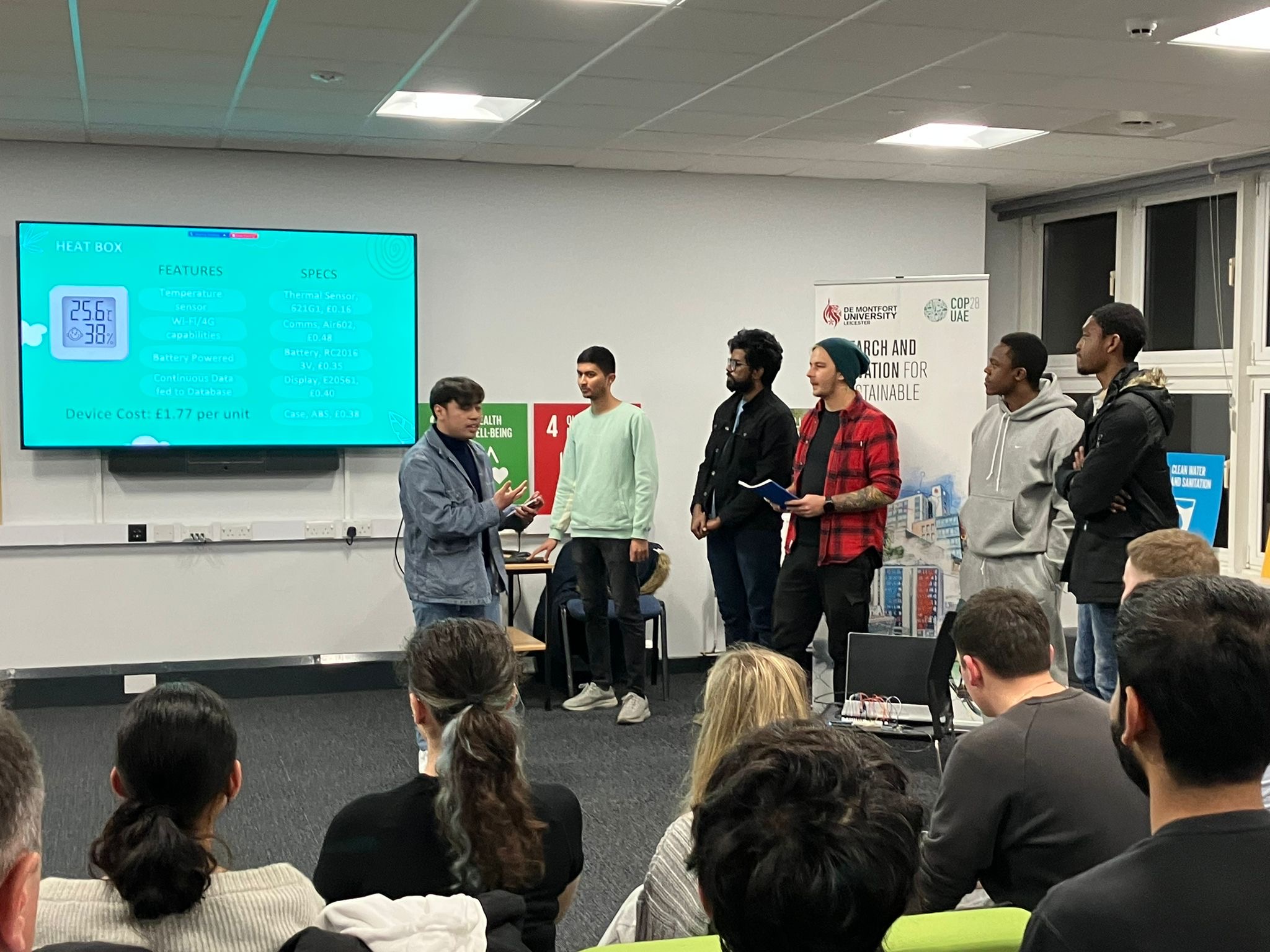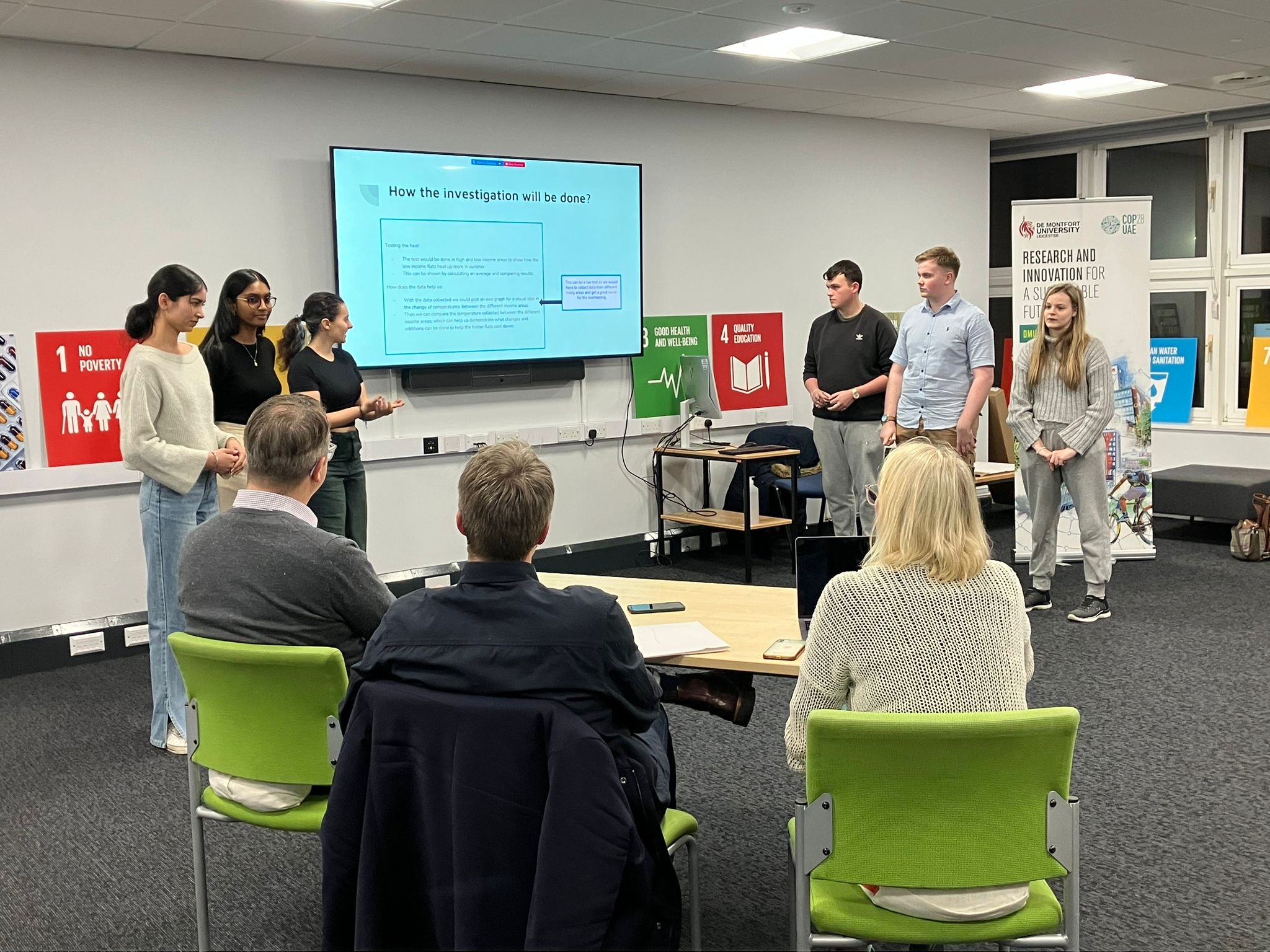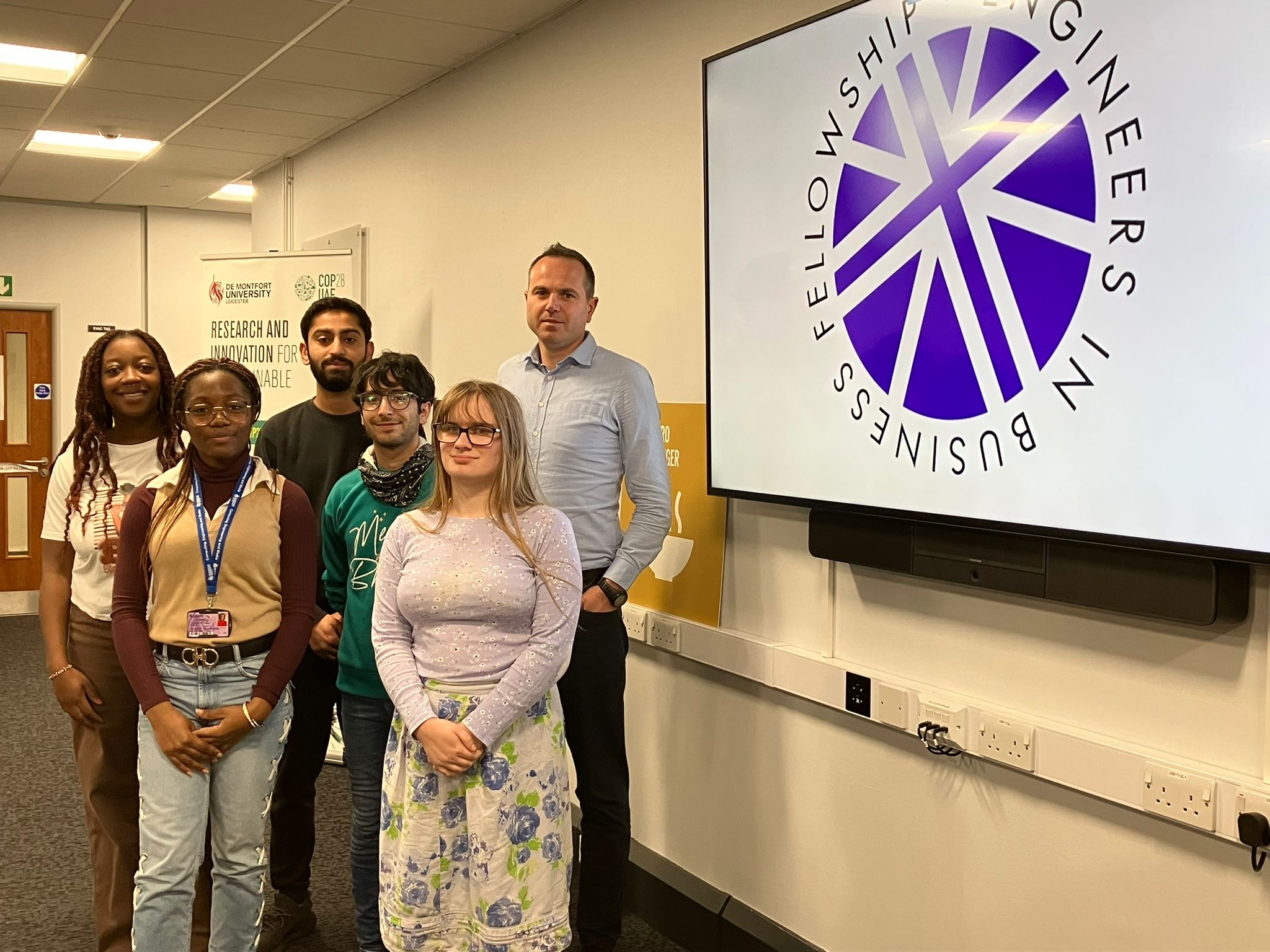Engineers in Business Hackathon – 2024
Back to Competitions | With a focus on sustainability, climate change and community the De Montfort University hackathon tackled the issue of temperate rises in high rise buildings. Splitting into smaller groups students had a week to identify and work on a solution for temperature monitoring and solutions to combat the issues and create community buy in. |


First place: Earth Avengers
As global temperatures rise, low-income housing encounters challenges in maintaining comfort. Shifting climate pattern disproportionately impact these communities.
The Earth Avengers team found a solution which incorporated an automatic temperature reading Internet of Things device distributed throughout the community. These battery-powered devices used temperature sensors with Wi-Fi/4g capability, with data continuously fed into a database. An online platform would be created to engage with the community, with transparency about data collection and for people to learn about climate change.
Students:
- Ched Dominic Mazaredo – Sustainable Built Environment
- James Mboma – Software Engineering
- Sivarama Krishanan Chandran – Cyber Security
- Kirtan Satodiya – Applied Computing
- Wilfred Kamdoum – Computer Science
- Bart Kajak – Cyber Security
Prize awarded: £1,600

Second place: Ice Cube
Ice Cube’s idea for data collection is computer-based and wireless where the collected data is displayed in an easy-to-understand dashboard that the building manager can view the temperatures in each flat, the average temperature on each floor, and any alerts for any elderly/vulnerable tenants that may need a check-in during high or low temperatures.
It uses cheap technology that is easily set up in each flat, just a simple module about the size of a credit card, that can be stuck to the wall above the door to the flat to get a temperature measurement from the same place in the flat every time for consistent results. There is no wiring needed as the temperature modules are battery powered and the batteries will only need to be changed about once a month.
The temperature collection modules send the data to a small repeater device at the end of each corridor that will forward the data down each floor’s repeater to the manager’s office on the bottom floor where the main data collection module will be located to process the data and display it. It is easily scalable to fit any sized block of flats, as well as being cost-effective. Also, the data collected will be saved to a spreadsheet so it can be viewed at any point in the future
Students:
- Hannah Nelson – Mechanical Engineering
- Pahulpreet Kaur – Energy Engineering
- Tatiana Rassen – Mechanical Engineering
- Gabriela Lucas Vinuela – Aeronauical Engineering
- Rhys Pounder – Computer Networks and Security
- Adam Firth – Cyber Security
Prize awarded: £1,000

Third place: Tempcap
To tackle the challenge of demonstrating that social housing gets hotter than other forms of housing, the Tempcap team conceptualised a detailed solution encompassing a data logging system, an app, and analytical tools.
It incorporated a data logging system which identified key rooms where temperatures rise significantly like living areas and bedrooms, application development to allow tenants to easily view and understand temperature data and analytical tools to show trends and spikes.
Students:
- Stefan Calaraso – Software Engineering
- Abdur Rehman – Computer Science
- Aroyo Michelechele – Aeronautical Engineering
- Elinor Withworth – Game Production
- Rosine Dzelamonyuy – Mechatronics and Robotics
- Subhan Zafar – Animation
Prize awarded: £400
Positive feedback
Having the Engineers in Business Prize fund enabled De Montfort University to run a competition to find a sustainable solution for our community. This competition ran exclusively for our students within the Faculty of Computing, Engineering and Media and received strong engagement across the three schools. With remarkable solutions, three deserving teams were financially rewarded for their exceptional extra-curricular dedication. Beyond the reward, the prize fund acts as a strategic investment, moulding the future engineers, leaders, and visionaries who are empowered to drive positive change through innovation and entrepreneurship.
Simon Baines
Enterprise and Entrepreneurship Manager
De Montfort University
